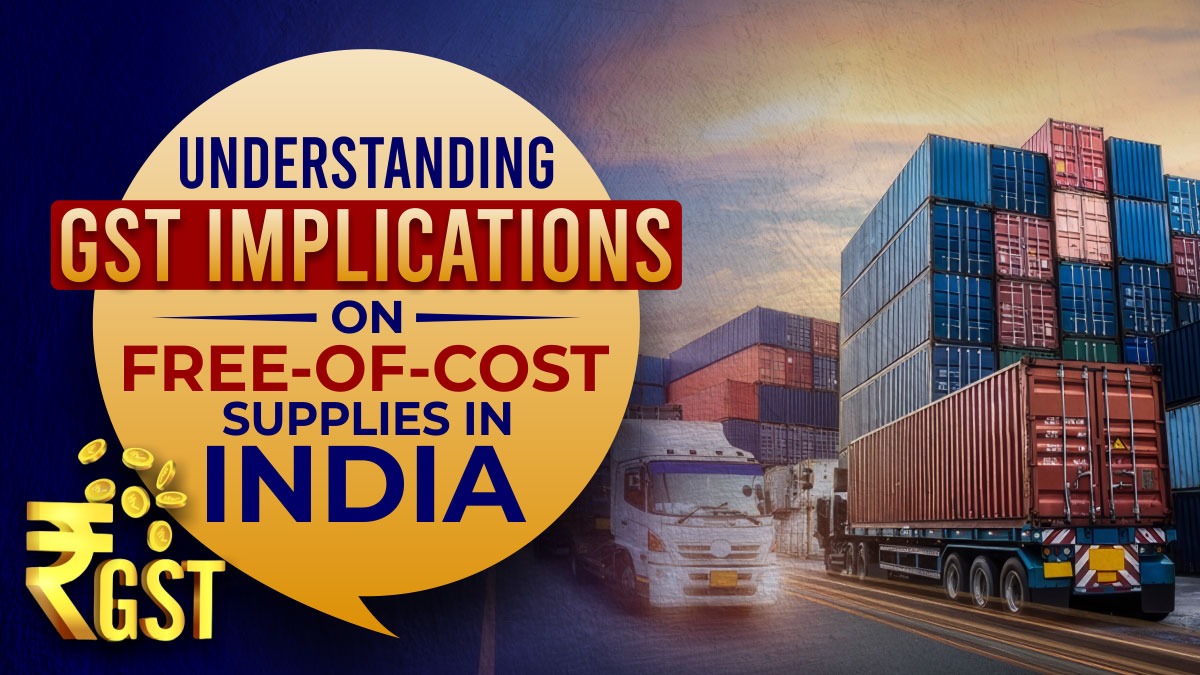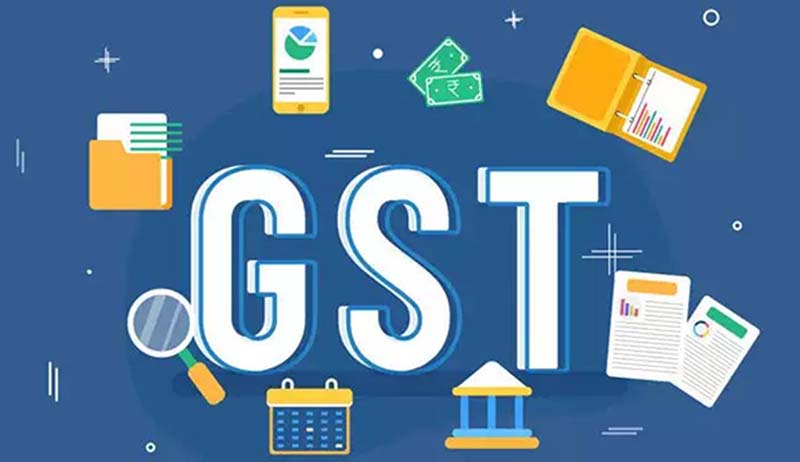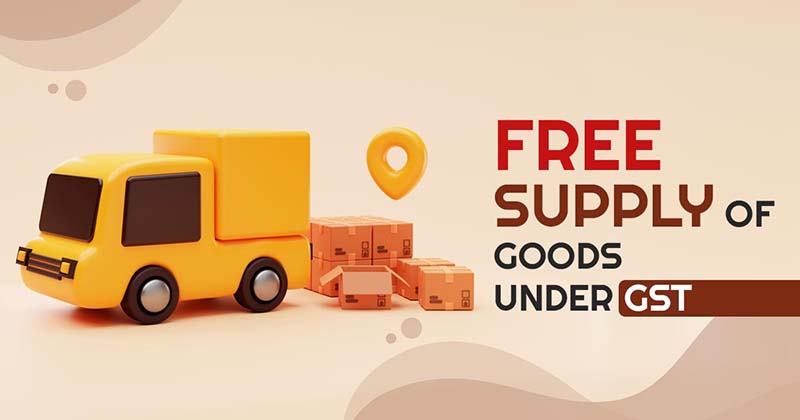
Introduction:
In India, the Goods and Services Tax (GST) regime has brought about significant changes in the taxation landscape. Among various aspects, understanding how GST and Indirect Taxation applies to free-of-cost supplies is crucial for businesses. Let’s delve into the implications and considerations surrounding this topic.
What are Free-of-Cost Supplies?
Free-of-cost supplies refer to goods or services provided without any monetary consideration. These can include gifts, samples, promotional items, or services offered as part of a business arrangement without charging the recipient. First Let’s Understand, Tax Implications Before GST.
Before GST, two main taxes were applied to products:
- 1. Excise: This tax was charged on manufacturing activities, regardless of whether the goods were sold or not.
- 2. VAT / CST: This tax applied to sales. A sale was defined as transferring goods from one person to another for payment. If goods were transferred without payment, VAT / CST didn’t apply.
GST Treatment of Free-of-Cost Supplies:
Under GST law, transactions involving free-of-cost supplies are still subject to taxation. Even though there is no monetary consideration exchanged, GST implications arise based on the market value of the supplied goods or services.
Valuation for GST:
Determining the value of free-of-cost supplies is essential for GST compliance. According to GST rules, the value of such supplies should be based on the open market value of similar goods or services.
Input Tax Credit (ITC):
Businesses providing free-of-cost supplies need to consider the Input Tax Credit implications. They may be eligible to claim ITC on inputs, input services, or capital goods used in providing such supplies, subject to specific conditions.
Documentation Requirements:
Maintaining proper documentation is crucial for businesses engaging in free-of-cost supplies. Records should include details of the nature, quantity, and value of supplies, along with relevant GST invoices or documents.

Impact on Business:
Understanding the GST implications on free-of-cost supplies is essential for businesses to assess their financial implications accurately. It can impact pricing strategies, profit margins, and overall tax compliance.
Compliance Challenges:
Navigating the GST framework concerning free-of-cost supplies can pose challenges for businesses. Ensuring accurate valuation, compliance with input tax credit rules, and documentation requirements are some of the key areas that require attention.
Case Study: Analyzing GST Implications on Free of Cost Supplies in Service Agreements
Judgments: A Comprehensive Analysis of Case Law Reported as: 2023 (11) TMI 206 – CHHATTISGARH HIGH COURT
Introduction
This case presents a significant legal question concerning the Goods and Services Tax (GST) in India. The core issue revolves around whether diesel provided Free of Cost (FOC) by a service recipient to a Goods Transport Agency (GTA) should be included in the taxable value of the GTA service for GST purposes.
Factual Background and Legal Challenge
The petitioner filed a petition challenging the orders dated February 28, 2022, passed by the Appellate Authority for Advance Ruling (AAAR) and the Authority for Advance Ruling (AAR) under Section 101(3) of the Central Goods and Service Tax Act 2017 (CGST). The petitioner sought to declare these orders illegal, claiming that the inclusion of the value of FOC diesel in the taxable value of their services was not justified.
Legal Arguments and Analysis
The petitioner’s challenge brings to the forefront the interpretation of Section 15 of the CGST Act, which deals with the determination of the ‘value of taxable supply’. The dispute essentially hinges on whether the provision of FOC diesel by the service recipient forms part of the ‘consideration’ in the context of GST law.
- 1. Interpretation of ‘Consideration’ under GST Law: The case involves a nuanced interpretation of what constitutes ‘consideration’ for a supply under GST. The legal question is whether the provision of FOC diesel can be considered a non-monetary consideration that should be included in the taxable value of the service provided by the GTA.
- 2. Contractual Terms and Tax Liability: The case also highlights the interplay between contractual arrangements and statutory tax obligations. It raises the question of how contractual terms, such as the provision of FOC items, influence the determination of tax liability under GST law.
- 3. Principles of Taxation and Business Transactions: The decision in this case will have broader implications on how businesses structure their transactions and agreements, especially in the logistics and transportation sector. It underscores the need for clarity in the tax implications of various business arrangements.
- 4. Impact on the Transportation Sector: The outcome of this case is particularly relevant for the transportation sector, where it is common for service recipients to provide fuel or other necessities FOC to service providers. The ruling will set a precedent for how such practices are treated under GST law.
- IV. Conclusion and Implications
- Till the petition was filed, no National Appellate Authority was notified. However, this Court cannot direct the State to legislate on the doctrine of separation of powers. In view of the observations made in foregoing paragraphs the initial order passed by the AAR on
- 04.01.2021 shall revive and it is observed that though the diesel was provided free of cost by the service recipient, it would nevertheless be added to the value for the purpose of GST.
- The court’s decision in this case will be pivotal in clarifying the scope of taxable supply under GST, especially concerning non-monetary considerations like FOC diesel. It will also provide guidance on how contractual terms can affect GST liability, thereby influencing how businesses in the transportation sector and beyond draft their contracts and conduct their operations.
- This case represents a critical intersection of contractual freedom and statutory compliance in the realm of tax law, with significant implications for the interpretation of GST provisions and the conduct of business transactions in India.

Summary:
In conclusion, while free-of-cost supplies may seem straightforward, they have significant GST implications for businesses in India. Understanding the valuation, input tax credit eligibility, and compliance requirements is essential for smooth operations and tax compliance. By staying informed and adhering to GST regulations, businesses can effectively manage their tax obligations while engaging in free-of-cost supply transactions.
Click on the link below to learn more about GST.
https://njjain.com/all-you-need-to-know-about-show-cause-notice-under-gst/
